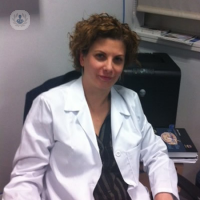Twin pregnancies: the importance of prenatal diagnosis
Written by:Twin pregnancies have increased in recent decades by assisted reproduction techniques and delayed childbearing. However, there are risks in this, because more abortions and preterm births occur. Prenatal diagnosis is essential to know the status of embryos and possible defects.

Twin pregnancies: increased cases. Why?
Multiple gestation has been a clear increase in recent decades. According to the National Statistics Institute (INE), in 2000 in Spain there were 386,336 singleton births of twins versus 5975. The latest available data are for 2012, which occurred in Spain 436,096 singleton births and 9,796 twin births.
In the Region of Murcia it has been a similar evolution. In 2000 the number was 13,726 singleton births against 253 twin births, while in 2012, there were only 16,140 births and 298 twin births.
Among the factors related to the increase in twinning we have:- Reproduction techniques, since naturally only 2% of pregnancies are twins, while about 25% of pregnancies achieved with reproduction techniques are twins.- Delayed motherhood, because the natural conception of dichorionic gestation increases 4 times between 15 and 35 years.
Types of twin pregnancies
It is important to distinguish between bichorial twin gestation (BC, 2 placentas) or a monochorionic (MC, a single placenta, which in turn can be diamniotic or monoamniotic). This diagnosis is performed in the first trimester of pregnancy, usually between 11-13 weeks, along with the diagnosis of malformations or chromosomal abnormalities. Chorionicity, ie, the number of placentas, will determine the prognosis and outcome of pregnancy.Compared with singleton pregnancies, there is an increased- The rate of abortion before the 24th week (1% in singletons, 2% in BC and 10% in MC)- Perinatal above 24 weeks gestation (0.5% in only 2% in BC and 4% in MC) mortality,- Growth restriction below the 5th percentile (5% in only 20% in BC and 30% in MC)- Preterm delivery (1% in only 5% in BC and 10% in MC)- Chromosome abnormalities (1% in only 1% to 4% in BC and MC)
In addition, there are other monochorionic twins added and serious complications such as the development of fetal-fetal transfusion syndrome or TRAP sequence.Monochorionic twins monoamniotic addition to the above complications, they have an increased risk of fetal death crosslinking problems umbilicals.
Importance of prenatal diagnosis in twin pregnancies
Prenatal diagnosis carried out by experts in gynecology and obstetrics is essential to know the chorionicity, fetal malformations, preterm delivery and other complications related to multiple gestation. To this must perform serial scans, which vary from there one or two placentas, although the most important are 12 (between 11-13 weeks) and 20 weeks, both key to diagnosis and screening of malformations chromosomal abnormalities, primarily.
In short, twin gestations have more added complications. One of the most important is preterm birth, ie before 37 weeks. About 50% of these pregnancies end up having preterm labor. Neonatal mortality and morbidity varies with gestational age, being much worse the prognosis is the lower gestational age at which the birth takes place. Therefore, it is essential to investigate further to reduce preterm delivery in such pregnancies, but it is also essential to have good Assistance Units Neonatology, where he will take care and serve the newborn, solving the possible complications of gestational age and birth weight.



